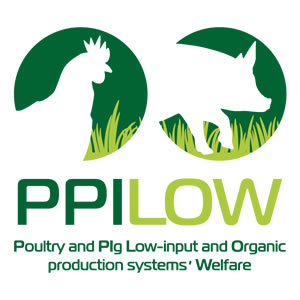PPILOW stakeholder workshop examined business opportunities
– by Jarkko Niemi, Minna Väre (LUKE), Petra Thobe (Thuenen) and Anne Collin (INRAE)
When pig and poultry farmers are considering to improve animal welfare, it is essential that the planned improvements are economically viable. Low-input outdoor and organic farming systems are so-called mid-market and high market systems, which enable farmers to receive a price premium for their production. Hence, the PPILOW project has been developing business models that could be used to valorize high welfare in low-input outdoor and organic farming systems. A PPILOW stakeholder workshop was organized in Brussels at the beginning of March. The aim of the workshop was to examine the most critical features of value chains and the most urgent actions needed to strengthen low-input outdoor and organic pig and poultry production in Europe. The participants discussed how animal welfare could be turned into business value and what policy and market actions would be critical to enable welfare improvements. The workshop focused on practices such as rearing entire male pigs and dual-purpose poultry breeds that have been experimented in PPILOW. The workshop identified measures that are pertinent to promote high welfare low-input outdoor and organic farming systems. It was considered important to ensure a level playing field across Europe. As low-input outdoor and organic farms are few in number and the businesses are often small scale, it was considered important to ensure that the markets operate transparently and that unfair trading practices and excessive price margins in the value chain are prevented, for example through regulation. The participants also called for public awareness-raising and promotion measures among consumers. One of the examples was communication with restaurants to promote organic products. The group also discussed animal welfare assessments, the possibility of introducing a harmonized animal welfare label in the European market and sharing animal welfare information to consumers. These could be tools to valorize animal welfare improvements in consumer segments that are willing to pay for premium products, thus making the animal welfare improvements financially more attractive to farmers. Funding of welfare improvements on farms was also found to be an important issue. The common agricultural policy of the European Union Common agricultural policy could be an instrument to support local and small-scale high animal welfare farms to enter the markets.


